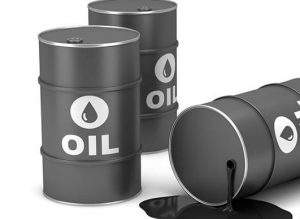OPEC Raises 2023 Oil Demand Forecast As China Reopens
OPEC has raised its 2023 oil demand forecast by 100,000 barrels per day amid expectations of an economic rebound in China, the world’s largest crude importer.
The group expects global oil demand to grow by 2.3 million bpd this year, which is higher than its previous estimate of 2.2 million bpd growth for 2022. “Key to oil demand growth in 2023 will be the return of China from its mandated mobility restrictions and the effect this will have on the country,” the group of oil-producing countries said in its monthly oil market report on Tuesday. China, the world’s second-largest economy, reopened its borders last month after adhering to a strict zero-Covid policy for about three years.
“Much will depend on how the government plans to manoeuvre the delicate balance of curbing Covid-19 infections versus opening up for business,” Opec said. Moreover, a number of global economic concerns − including the inflation levels, monetary tightening measures, sovereign debt levels, as well as geopolitical tensions − will weigh on global oil demand prospects. Opec also revised its global economic growth forecast for this year to 2.6 per cent on “better-than-anticipated” economic performance in key countries in the second half of 2022. It previously estimated growth of 2.5 per cent. The group lowered its 2023 output estimate for non-Opec production by 100,000 bpd to 1.4 million bpd on expectations of a drop in output in Russia and Mexico.
Russia, the world’s second-largest oil producer after Saudi Arabia, said it would cut oil production by 500,000 barrel per day, or about 5 per cent of its crude output, in March after the West imposed price caps on Russian crude and oil products. On February 5, the G7 and the EU agreed to set the price cap at $100 a barrel for products that trade at a premium to crude, such as diesel, and $45 a barrel for products that trade at a discount, such as naphtha and fuel oil. The price cap was introduced along with an EU ban on Russian diesel and other refined products. “Large uncertainties remain over the impact of ongoing geopolitical developments, as well as US shale output in 2023,” Opec said. At its last meeting, the Opec+ alliance of 23 oil-producing countries agreed to roll over its existing oil output cuts of two million barrel per day.
“It is important for the countries of the Declaration of Co-operation to continue co-ordinating efforts to support a balanced and stable oil market to help navigate these uncertainties,” the group said on Tuesday. The International Energy Agency expects global oil demand to surge to record levels this year on China’s recovery. Oil demand will rise by 1.9 million bpd to 101.7 million bpd in 2023, said the IEA, which previously estimated a growth of 1.7 million bpd. Meanwhile, the International Monetary Fund recently raised its global economic growth estimate for this year to 2.9 per cent from a previous forecast of 2.7 per cent. Global economic growth may be reaching a “turning point”, supported by falling inflation and China’s reopening, IMF’s managing director Kristalina Georgieva said on Sunday.
“While this is encouraging, the balance of risks remains tilted to the downside. China’s recovery could stall and inflation could remain higher than expected,” she said. Brent, the benchmark for two thirds of the world’s oil, was trading 1.1 per cent lower at $85.66 a barrel at 4.44pm UAE time. West Texas Intermediate, the gauge that tracks US crude, was down 1.51 per cent at $78.93 a barrel.








